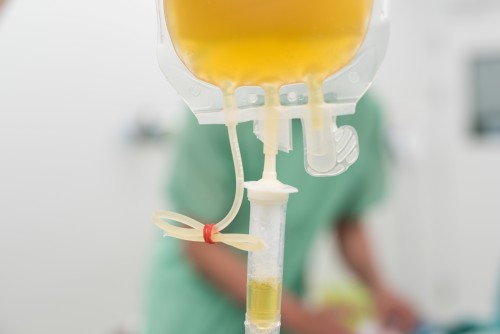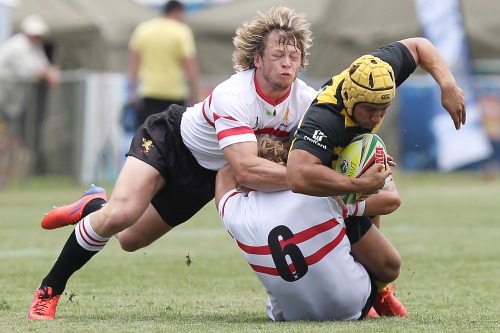#clinical trials
A new trial by UC San Diego Health infectious disease specialist Maile Young Karris, MD, will use longitudinal questionnaires and qualitative interviews to assess the impact of living in an interconnected virtual village on the loneliness known to afflict older people with HIV.
“It’s about changing the culture back to how it used to be,” Karris said, “where neighbors actually knew each other and helped each other and you didn’t have to worry so much about your poor dad who lives by himself, far away from you, because you knew that his neighbors would call you if anything happened or would make sure that he was eating.”
Study: Convalescent Plasma Can be Effective Early COVID-19 Therapy
Confirming findings first announced in December, a study published March 30, 2022 in The New England Journal of Medicine reports that plasma from patients who have recovered from COVID-19 and whose blood contains antibodies against SARS-CoV-2, the causative virus, is an effective and safe option as an early outpatient treatment for the disease.
The research showed that high-titer (antibody-rich) COVID convalescent plasma — when administered to COVID-19 outpatients within nine days after testing positive — reduced the need for hospitalization for more than half of the study’s predominantly unvaccinated outpatients. The U.S. Food and Drug Administration (FDA) currently authorizes this plasma as a treatment option for outpatients with immunocompromising diseases or receiving immunocompromising medications, and for all patients hospitalized with early-stage COVID-19.
The multi-institution study was overseen by Johns Hopkins University and included a testing site at UC San Diego Health, led by Edward Cachay, MD, an infectious disease specialist and professor of medicine.
“The findings reinforce the idea that convalescent plasma therapy can be an important and valuable early option for outpatient treatment,” said Cachay. “It’s safe, well-understood and effective under the right circumstances. We’ve answered a century-old question about when and how to use passive antibody therapy, which will be important for future pandemics to come.”
In the outpatient early-treatment study conducted between June 2020 and October 2021, the researchers provided 1,181 randomized patients with one dose each of either polyclonal high-titer convalescent plasma (containing a concentrated mixture of antibodies specific to SARS-CoV-2) or placebo-control plasma (with no SARS-CoV-2 antibodies). The patients were 18 and older, and had tested positive for SARS-CoV-2 within eight days prior to transfusion. A successful therapy was defined as a patient not requiring hospitalization within 28 days after plasma transfusion.
The study found that 17 patients out of 592 (2.9 percent) who received the convalescent plasma required hospitalization within 28 days of their transfusion, compared with 37 out of 589 (6.3 percent) who received placebo-control plasma. This translated to a relative risk reduction for hospitalization of 54 percent.
Timing of the convalescent plasma transfusion also is critical: “The earlier the better,” the researchers said.
The FDA has authorized emergency use of convalescent plasma with high titers of anti-SARS-CoV-2 antibodies “for the treatment of COVID-19 in patients with immunosuppressive disease or receiving immunosuppressive treatment, in either the outpatient or inpatient setting.”
And earlier this month, the American Red Cross announced it would “temporarily test all blood donations for COVID-19 antibodies to help identify donations that could be processed into convalescent plasma.” The organization said this was being done “to help support immunocompromised patients battling COVID-19.”
— Scott LaFee
Post link
Later Hit: Does Cannabis Ease Pain, Speed Recovery in Injured Athletes?
Increasingly, professional athletes in sports ranging from football to bicycling to long-distance running have turned to using cannabis to reduce pain from post-game injuries and to help speed recovery.
Anecdotal reports of cannabis’ purported benefits abound, but empirical evidence is scant. Today, the National Football League announced funding of a novel clinical trial that will assess the therapeutic efficacy (and any possible adverse effects) of delta-9-tetrahydrocannabinol (THC), the primary psychoactive compound in cannabis; cannabidiol (CBD), the second most prevalent active ingredient in cannabis but not psychoactive; and a combination of the two for treating post-competition pain caused by soft tissue injury, compared to a placebo.
Co-led by Mark Wallace, MD, a pain management specialist and director of the Center for Pain Medicine at UC San Diego Health, and Thomas Marcotte, PhD, professor of psychiatry at University of California School of Medicine and co-director of the Center for Medicinal Cannabis Research at UC San Diego, the randomized, double-blind trial will involve testing and monitoring of professional rugby players.
Professional rugby was chosen for the first trial because it approximates the types of injuries also experienced by NFL players, the researchers said, and was logistically more feasible. The primary goal of the trial will be to evaluate pain relief and recovery. Secondary goals include assessment of any effects on physical function, sleep, cognition and mood.
— Scott LaFee
Post link


